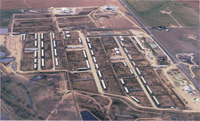Yesterday, the Wisconsin-based farm policy group, the Cornucopia Institute, announced the filing of class action lawsuits against the nation’s largest organic dairy outfit—Aurora Organic Dairy. The company, which sells its organic milk to big-box retailers like Wal-Mart, Target, and Costco, has been under investigation by the USDA for the past two years. According to their April findings, the company is guilty of labeling and representing its milk as organic when it was “not produced and handled in accordance with the National Organic Program regulations.” Cornucopia’s own investigation found animals were confined to pens and sheds, another violation of federal law. In August, Aurora and the USDA established a consent agreement: Aurora can continue to operate as an organic outfit, but the company is on notice with a one-year probation.
The Cornucopia Institute went further. The class-action lawsuit filed yesterday (a second one is being filed today) demands redress for consumers who purchased milk from Aurora, and requests the U.S. District Court halt the ongoing sale of Aurora’s organic milk until the company can demonstrate compliance with federal regulations.
Mother Jones has had its eye on Aurora for a few years now. Read this piece on the corporatization of organic milk. The organic dairy business is estimated to value at $3.5 billion by 2010 and industrial operations like Aurora, who already make a killing off organic milk, will be set to rake in a big chunk of that. By flooding the market with a surplus of cheap milk, companies like Aurora have slashed market prices, pushing many smaller operations out of the business. Many large corporations have gobbled up organic operations, check out this chart provided by Cornucopia to see whose in bed with who. Far from a democratization of the market, industrial scale outfits threaten the entire organic movement. More accountability for these corporate producers is a must.
—Michelle Chandra
















